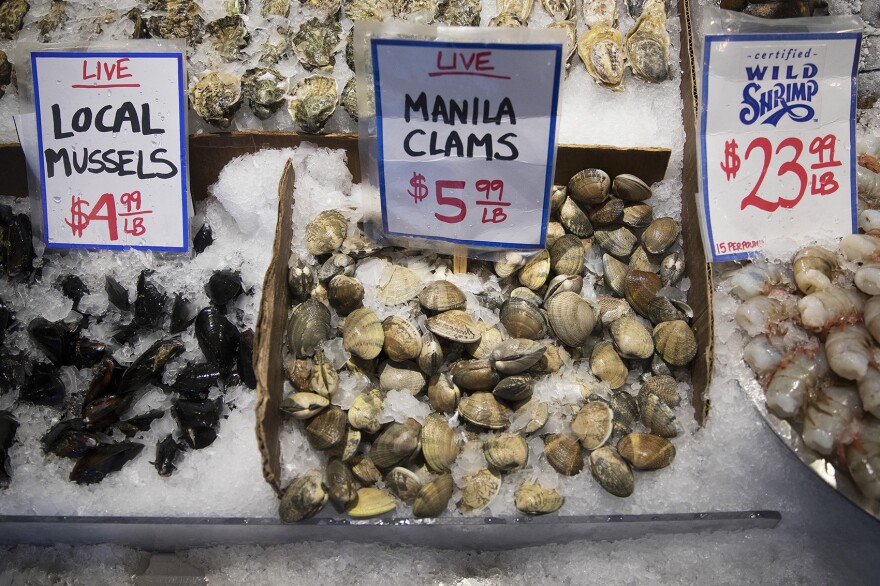If you take legal or illegal drugs, or even flush them down the toilet unused, there's a good chance they'll wind up in Puget Sound.
Now there may be evidence that the opioid crisis reaches underwater, too. Scientists have found traces of oxycodone in shellfish near Bremerton and in Seattle's Elliott Bay.
Mussels in other parts of Puget Sound did not contain the opioids.
Jennifer Lanksbury, a biologist with the Department of Fish and Wildlife, said the doses of oxycodone found in the mussels were very low — too low to get you high if you did eat those shellfish.
It's just one of hundreds of pharmaceuticals that native mussels have absorbed from the waters of Puget Sound. Scientists have also identified antibiotics, antidepressants, chemotherapy drugs, and heart medication in mussels' systems.
Researchers are finding similar drugs in juvenile chinook salmon. Shellfish don't have livers, so they can't metabolize our drugs. But fish do, and their growth and immune systems are getting messed up as a result.
A 2016 study by the National Oceanic and Atmospheric Administration estimated that close to 300 pounds of pharmaceuticals and personal-care products enter the waters of Puget Sound each day.


